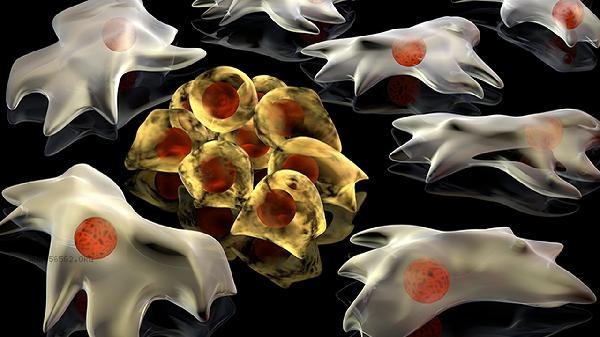Low neutrophil count does not necessarily indicate disease, it may be caused by physiological factors or mild pathological conditions. The main influencing factors include viral infection, drug side effects, malnutrition, autoimmune diseases, and abnormal bone marrow hematopoietic function.

1. Viral infection:
Common infections such as respiratory syncytial virus and influenza virus can temporarily reduce neutrophils. Viruses inhibit bone marrow hematopoietic function or accelerate granulocyte depletion, often accompanied by symptoms such as fever and cough. Blood tests usually recover spontaneously 2-4 weeks after infection control.
2. Drug side effects:
Antibiotics such as penicillin, antithyroid drugs such as methimazole, chemotherapy drugs, etc. may cause granulocytopenia. Medications can cause abnormal indicators by directly inhibiting bone marrow or inducing immune responses, and most of them can be reversed after discontinuation. 3. Malnutrition: Long term deficiency of vitamin B12, folate, or iron can affect the differentiation and maturation of granulocytes. Vegetarians and people with digestive and absorption disorders are prone to such situations, and should be alert when accompanied by synchronous decreases in hemoglobin or platelets. 4. Autoimmune diseases: Systemic lupus erythematosus, rheumatoid arthritis, and other diseases may produce anti neutrophil antibodies. These patients often have typical symptoms such as joint pain and rash in addition to abnormal blood tests, and should be diagnosed through immunological examination. 5. Bone marrow abnormalities: Diseases such as aplastic anemia and myelodysplastic syndrome directly affect hematopoietic function. If the neutrophil count remains below 1.5 × 10 ⁹/L and there is a tendency for bleeding or repeated infection, bone marrow aspiration is required for a definitive diagnosis. When neutrophils are found to be low, it is recommended to recheck the blood routine to rule out detection errors. Daily intake of high-quality protein and dark vegetables should be ensured to avoid raw and cold foods to prevent infection. Moderate low-intensity exercise such as brisk walking and yoga can enhance physical fitness, but it is necessary to avoid intense exercise that may temporarily weaken the immune system. Long term use of drugs that may affect hematopoietic function should be monitored regularly for blood tests. Pregnant women, children, and other special populations who experience abnormal indicators should seek specialized medical attention in a timely manner.











Comments (0)
Leave a Comment
No comments yet
Be the first to share your thoughts!